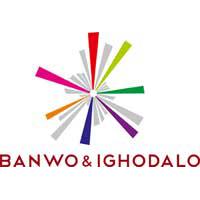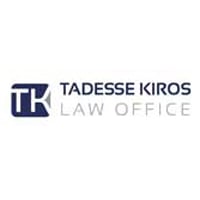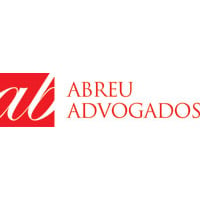
Partner | King & Spalding






Mehdi Haroun
Partner | King & Spalding
Based in: Number of years practice: 24
Principal practice areas: Energy, corporate
Languages spoken: French, Arabic and English
Bar admissions: Paris, Algeria
What is the geographical focus of your practice in Africa?
North and Francophone Africa.
Please describe the most important matters you have worked on in the African market in the last two years, including your role and the significance of the matter (if any) to the development of business and law.
We advised Total in relation to the acquisition of Marathon Oil Libya which owns interests in the Waha concession in Libya, one of the most important oil producing field in the country. This deal is unique in many respects. Most importantly, it is the first significant acquisition since the revolution in Libya and the asset is a complex asset both from an operational point of view given the situation of the country but also from a legal point of view since several agreements were entered into to cover the period of the US embargo in Libya and the exit of US companies and their re-entry after the lifting of the embargo. Many challenges were also faced regarding the position of the NOC and the Libyan government in the current unstable situation.
We advised a new client, Trident Energy, on their potential acquisition of Eni Tunisia which holds all Eni’s interests in Tunisia. We worked on the acquisition due diligence, negotiation and drafting of the SPA and the negotiation strategy with the authorities. The deal unfortunately did not close due to the lack of approval by the Tunisian authorities, but would have been the largest deal in Tunisia following the revolution.
The firm is advising Dea Erdoel on various legal aspects of the Reggane upstream developments in Algeria including the EPC contract and more recently, the gas sales agreement relating to the Reggane gas. The Reggane project is one of, if not, the major current gas development project in a country where production is declining and new discoveries becoming scarce. This project is therefore of key importance to the country.
The firm is advising Anadarko and Maersk in respect of the development and operatorship issues of the El Merk field in Algeria. This project has raised unprecedented complex legal issues in relation to upstream operations, which have required innovative solutions.
We have been advising Maersk Oil on the Algerian aspects of its acquisition by Total and negotiation with local authorities. This transaction is one of the key acquisitions of Total last year and its largest acquisition since 1999. It added all Maersk Oil’s activities worldwide to Total’s portfolio. For Maersk, the divestiture is part of its strategy to focus on its transport and logistics business and other activities.
What differentiates your practice from that of other private practice lawyers?
We have two Franco-Algerian lawyers on our team, who were born and educated in North Africa. I am the only partner of a major law firm to be dual qualified, both in Algeria and France. This, coupled with our language capabilities (Arabic being our mother-tongue) gives us a unique offering. We spend a great deal of our time abroad, providing an on-the-ground presence for our clients and building up a wide network of personal contacts within the local administration and state-owned companies.
To this intimate knowledge of African law and business culture we can add the weight of an international firm, with lawyers on hand all around the clock. Also we can rely on a higher number of former practicing engineers, geologists, chemists who are now lawyers and partners of the firm and who understand the technicalities of such projects better than anywhere else.
Why has Africa been a particularly strong focus for you?
Since I was born in Algeria and am qualified at both the Paris bar and Algerian bar, it was a natural choice to work on both French and Algerian matters initially. Over time my practice has expanded to include expertise in other North African countries, and also more generally Francophone African countries.
Given the importance of power and infrastructure projects in the region and the fact that I specialised in these areas it came naturally to me to focus on this region. The firm is also seeing now Africa as a strategic geography of growth for us.
What changes have you seen in the appetite for Africa-based ventures and investments over the last five years?
In the energy market (my specialty) there has been a clear decline in large projects and investments – in certain countries because of the political situation which has become unstable, and in others because of the global economic crisis – prices are lower and resources are fewer – there is a lack of new projects. However on the private equity side we have seen significant development in certain countries.
Are there any aspects of the African legal market that you would like to see change?
Africa is a vast and diverse continent with different legal cultures and systems. It is difficult to give a broad and general answer in this respect and it is country specific, except with respect to the OHADA region which covers multiple jurisdictions.
However if we have to try to find common themes based on our experience, I would mention two important aspects: legal certainty and bureaucracy. Regarding the former, we have seen too much legal uncertainty rendering negotiation and implementation of deals difficult, either because of legislative changes or as a result of revolutions in certain countries where no more decisions are taken. In terms of the latter, in trying to reach European standards in some respects many countries are putting in place legal tools that cannot be implemented and block transactions or render them more complex, time consuming and costly.
What megatrends do you think will shape the African market over the coming five years? How (if at all) will these trends affect your practice?
Companies in the oil and gas market are trying to cut their losses or exit generally. In the current economic climate, businesses will not make up their losses with new projects so want their contracts to be as cost-effective as possible. Whereas in the past they would have let certain issues go, now they are fighting them. This is generating a lot of work for arbitration lawyers, which our firm specialises in.
The worldwide trend towards renewables has not yet reached Africa, but we are starting to see interest in these fields in many countries, especially in Morocco and Tunisia, which will create new investment possibilities for the future.